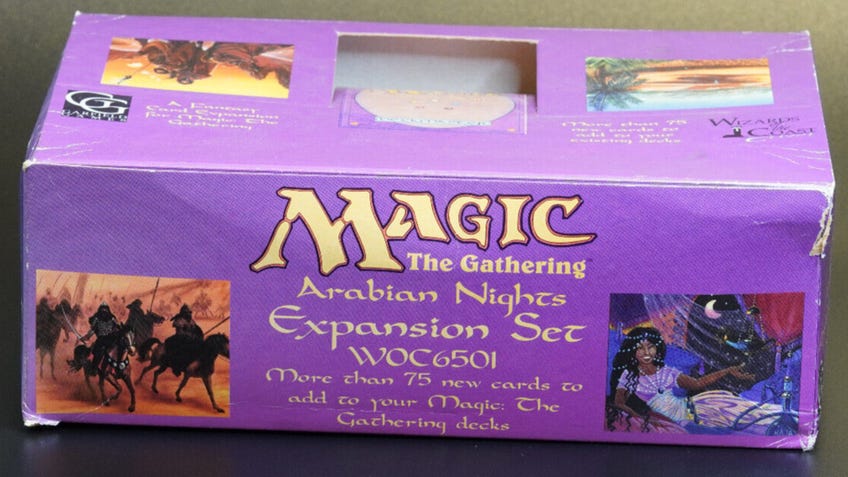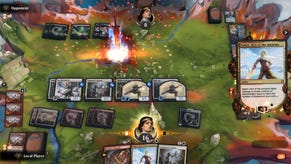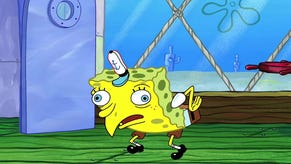Magic: The Gathering’s card collecting boom continues as empty boxes and booster pack wrappers appear on eBay for wild money
Empty Arabian Nights booster box set to fetch hundreds under the hammer.
Even empty boxes for vintage Magic: The Gathering sets are due to fetch hundreds of pounds at auction on eBay as the trading card game’s ongoing collecting buzz continues to thrive.
Magic: The Gathering cards have sold for record prices in recent years, as rare MTG cards boomed in value in the wake of the pandemic lockdown and increasing interest in the trading card game driven by its 30th anniversary and crossovers with the likes of Dungeons & Dragons, Warhammer 40,000 and Lord of the Rings.
“The new Lord of the Rings set [Tales of Middle-earth], I've never really seen anything like it in terms of demand,” Heimir Pálmason, director of trading card game outlet WeBuyAnyCard, told Dicebreaker. “It's incredibly deep. People want almost every single card from the set. Commons and uncommons are popular. Rares are incredibly popular.”
While MTG’s holy grail card, the Black Lotus, has continued to lead the way in terms of value with multiple record-breaking sales for hundreds of thousands of dollars - some within mere days of each other - the other cards in its Power Nine, a series of nine powerful banned cards from the TCG’s very first sets, have also appeared more frequently at auction, raising more money than ever.
“Probably around 2020, 2021… boom, old-school cards really just exploded,” Pálmason recalled. “I remember selling a [Power Nine card] Timetwister for £1,200 pounds towards the beginning of 2020. And looking at the prices nine, 12 months later, it was over £3,000 pounds for the same card.”
While Pálmason believes that older Magic: The Gathering cards have cooled a little in terms of price from the peaks of celebrity musician Post Malone reportedly dropping a record $800,000 on an Alpha Black Lotus in 2022, demand for MTG cards as a whole continues to remain strong.
“Old-school Magic has fallen off a little bit in the last year. A lot of the prices have dropped a little bit from their highs,” Pálmason said. “Right now I would say Magic is more focused on the new releases.
“[But] there's no shortage of people buying expensive Magic cards even in this economic climate. We sell maybe four or five dual lands [land cards that produce two colours of mana, making them especially valuable - copies can sell for thousands] every week.”
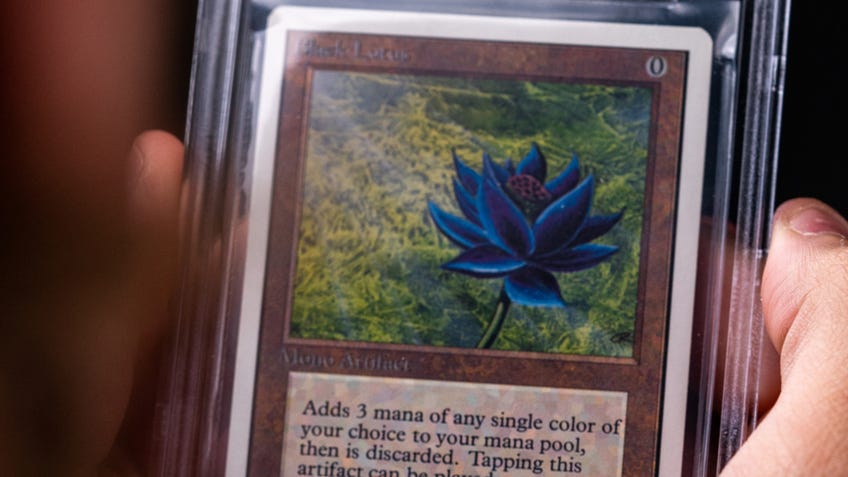
Pálmason believes some of that demand has shifted from spending thousands on original copies of sought-after cards in pristine condition to picking up modern reprints, which make older Magic: The Gathering cards more accessible for those on a smaller budget and hoping to actually play with them. While banned cards, such as the Black Lotus, remain expensive to acquire (even in unplayable, reprinted form), cards still legal for use in MTG’s most popular formats often make a return in the card game’s latest sets.
“It doesn't matter so much to new players now whether they're buying the original version of a card, or the reprint version of the card, because the demand comes from a healthy place,” Pálmason explained. “The demand is coming from [the fact] they want to play with the card. It doesn't matter what the set symbol on the card is if you just want to play with it and put it in your deck. The same goes for condition; people who just want to put their card in a deck, they don't care so much as long as it’s sleeve-playable, as long as it's not destroyed or ugly.”

In some cases, it’s not even just actual Magic: The Gathering cards that are exciting fans. Pálmason’s eBay store currently has auctions live for multiple empty boxes from vintage Magic: The Gathering sets that are set to fetch up to hundreds of pounds alone.
One highlight is an empty box for Arabian Nights, Magic: the Gathering’s first expansion released in 1993. While a sealed box containing booster packs might go for around $250,000 under the hammer - on the rare chance one appears at all - an empty box is a still rare but more realistic way for collectors to celebrate their love of the game.
“It's a nice piece of history to have,” Pálmason said. “Also, there's only so many left in the world. A sealed box of Arabian Nights, I've never seen one; I think only a handful exist. But an open one is still pretty good. I don't know how many of those open ones might exist, probably fewer than 100. That's just speculation, but it's just a cool item from Magic history that not a lot of people have or can get their hands on.”
The lots also include an empty box for second MTG expansion Antiquities, released in 1994, bundled with original wrappers for some of the box’s boosters. Other empty boxes on offer include boxes for 1994 releases The Dark and Legends.
“The guy who owned them, he bought them in the ‘90s. They used to be sealed,” Pálmason explained. “Some of those were left over so he just brought us everything, and we included it in the lot. I have not the foggiest idea in the world what it's going to sell for. He had some expectations that the Arabian Nights box could go for somewhere in excess of £500. For me, it could be anywhere from £200 to £2,000.”
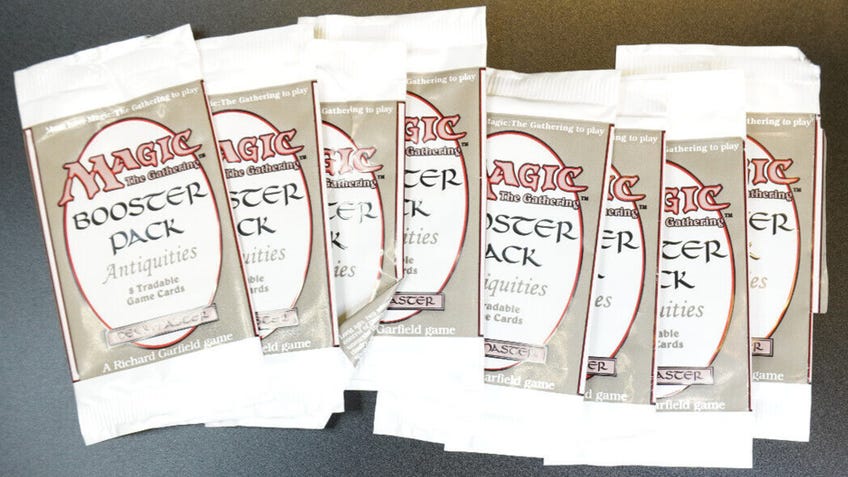
Even with the ongoing demand for Magic: The Gathering cards - and their associated paraphernalia - continuing to fetch serious money, Pálmason offered a blunt taste of reality for anyone wondering if they have a fortune hidden in their attic.
“99% of old Magic cards have no value,” Pálmason stated. “But occasionally we find gems. Like last summer, there was a lady who was taking the contents of her loft to the charity shop and she found a sealed box of International Edition. We bought it for £12,000, she was able to take her family on a holiday to Disneyworld.”
Pálmason reiterated that the best approach to trading MTG cards remains the idea that the game was spawned around 30 years ago: collecting cards based on what you enjoy about the game, rather than their value.
“I fundamentally believe that demand needs to come from players,” Pálmason confirmed. “I would say the UK market is more player-driven rather than collector-driven, which I think is a healthier state of affairs.
“That's why I want to sell people cards: because they just liked the card.”
